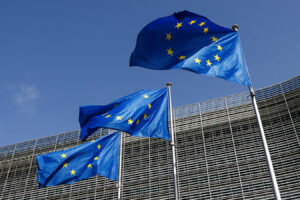
Indirect exporters to Europe urged to comply with EU carbon rules
EVEN COMPANIES that do not export to Europe will need to comply with the European Union’s (EU) Carbon Border Adjustment Mechanism (CBAM), the Philippine Exporters Confederation, Inc. (Philexport) said.
In a statement on Friday, Philexport, citing an official of SGV & Co., said that Philippine direct and indirect suppliers to the EU also need to familiarize themselves with the rules.
Lucil Vicerra, indirect tax services leader and global trade and customs partner at SGV, said that CBAM must be viewed as a mechanism that will steer Philippine businesses towards “remaining competitive in the global market.”
“Acting now, while recognizing that it is a longer-term endeavor, will lead to a competitive advantage over regional peers,” Ms. Vicerra said.
“By meeting CBAM requirements, businesses can demonstrate environmental responsibility, maintain current EU business, capture additional market share, and establish themselves as industry leaders,” she added.
She said that even exporters not directly exporting to the EU could still be affected if their customers that buy their materials and products export to Europe.
“CBAM does not only cover direct exports from the Philippines to the EU; it also covers indirect imports,” Ms. Vicerra stated.
She said that if an exporter from another country exports a product for which some materials were made in the Philippines, the direct exporter will need to ask the Philippine exporter for the carbon emissions data.
“The responsibility is there for Philippine companies that are indirectly exporting to the EU (to) understand what is being required of us,” she added.
She said that although the indirect exporters from the Philippines will not be affected by the policy in terms of cost, the exporters may lose out to other CBAM-compliant manufacturers if they are not able to comply with the direct exporters’ requirements.
“This could happen if the non-EU manufacturer is unable to comply with the requirement to calculate and provide the carbon emissions data, and the non-EU distributor is unable to provide its customers with the emissions data from the supplier and manufacturer,” she said.
“Filipino companies are thus advised to see compliance with CBAM regulation as a ‘transformative journey’ that has to be taken,” she added.
CBAM is a tariff on carbon-intensive products, such as steel and cement, that are imported into the EU. It entered into force on a transitional basis on Oct. 1. — Justine Irish D. Tabile



